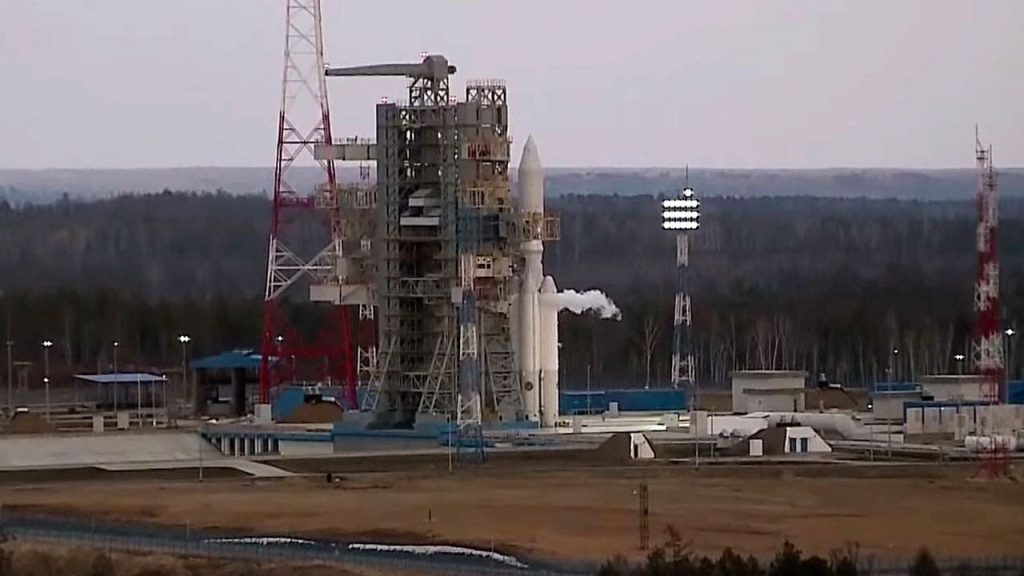Russia’s second attempt to test-launch a new heavy-lift rocket from its Far Eastern space complex was aborted due to a failure in the pressurization system of the oxidizer tank of the central block of the rocket. The launch was canceled about two minutes before its planned time, and another attempt will be postponed for at least one day. This new rocket, the Angara-A5, is part of the Angara family of rockets designed to replace the Soviet-designed Proton rockets. The first attempt on Tuesday also failed due to an issue with the oxidizer tank pressurization system.
The Angara-A5 rocket is a heavy-lift version that has been developed for future space missions. The previous three launches of this rocket were carried out from the Plesetsk launchpad in northwestern Russia. After the breakup of the Soviet Union in 1991, Russia leased the Baikonur Cosmodrome from Kazakhstan for most of its space launches. Russia pays $115 million per year to lease Baikonur through 2050. Despite continuing to rely on Baikonur, Russian authorities have developed Vostochny as the preferred facility for Angara launches. However, the construction of the new spaceport has faced delays and has so far seen limited use.
The failed launch attempts highlight the challenges Russia is facing in transitioning to its new Angara rockets and the construction and utilization of the Vostochny spaceport. The delays in launching the Angara-A5 rocket from Vostochny raise concerns about Russia’s ability to maintain its position in the global space industry. The Russian space agency, Roscosmos, will need to address the technical issues that led to the launch failures and work towards a successful launch in order to demonstrate the reliability and effectiveness of the new rockets and spaceport.
In addition to technical challenges, Russia is also facing competition from other countries in the space industry, particularly China. Russia and China are considering the possibility of using nuclear power on the moon, a move that could potentially upstage the United States. This collaboration could potentially shift the balance of power in space exploration and further challenge the dominance of the US in the field. Russia will need to navigate these international dynamics while also addressing its internal challenges in order to remain a key player in the space industry.
Despite the setbacks in launching the Angara-A5 rocket from Vostochny, Russia continues to make progress in its space exploration efforts. The development of new rockets and spaceports demonstrates Russia’s commitment to advancing its space program and maintaining its position as a key player in space exploration. The successful launch of the Angara-A5 rocket will be crucial for showcasing Russia’s technological capabilities and reliability in space missions. By overcoming the challenges and obstacles, Russia aims to strengthen its position in the global space industry and further its ambitions in space exploration.
Overall, the aborted launch attempts of the Angara-A5 rocket at the Vostochny spaceport highlight the technical and logistical challenges that Russia faces in transitioning to new rockets and spaceports. Despite setbacks, Russia remains committed to advancing its space program and competing with other countries in the global space industry. With continued efforts to address technical issues and improve launch capabilities, Russia aims to demonstrate its reliability in space missions and maintain its status as a key player in space exploration. By navigating international dynamics and working towards successful launches, Russia seeks to solidify its position in the evolving space industry landscape.


